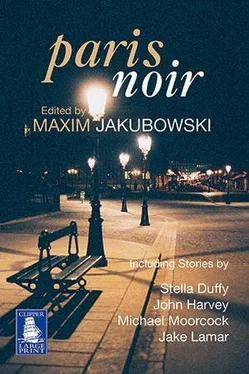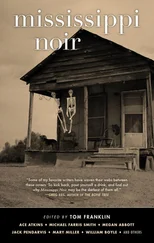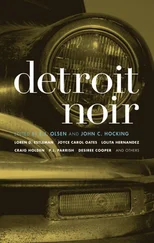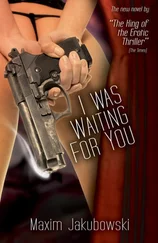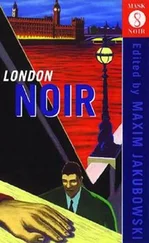Maxim Jakubowski - Paris Noir
Здесь есть возможность читать онлайн «Maxim Jakubowski - Paris Noir» весь текст электронной книги совершенно бесплатно (целиком полную версию без сокращений). В некоторых случаях можно слушать аудио, скачать через торрент в формате fb2 и присутствует краткое содержание. Жанр: Детектив, на английском языке. Описание произведения, (предисловие) а так же отзывы посетителей доступны на портале библиотеки ЛибКат.
- Название:Paris Noir
- Автор:
- Жанр:
- Год:неизвестен
- ISBN:нет данных
- Рейтинг книги:3 / 5. Голосов: 1
-
Избранное:Добавить в избранное
- Отзывы:
-
Ваша оценка:
- 60
- 1
- 2
- 3
- 4
- 5
Paris Noir: краткое содержание, описание и аннотация
Предлагаем к чтению аннотацию, описание, краткое содержание или предисловие (зависит от того, что написал сам автор книги «Paris Noir»). Если вы не нашли необходимую информацию о книге — напишите в комментариях, мы постараемся отыскать её.
Edited by Maxim Jakubowski, the stories range from quietly menacing to spectacularly violent, and include contributions from some of the most famous crime writers from both sides of the Atlantic, as well as the other side of the Channel.
Paris Noir — читать онлайн бесплатно полную книгу (весь текст) целиком
Ниже представлен текст книги, разбитый по страницам. Система сохранения места последней прочитанной страницы, позволяет с удобством читать онлайн бесплатно книгу «Paris Noir», без необходимости каждый раз заново искать на чём Вы остановились. Поставьте закладку, и сможете в любой момент перейти на страницу, на которой закончили чтение.
Интервал:
Закладка:
Of course, Zenith had said nothing of any collaboration, though it was probably not the first time he and the Englishwoman had worked together, she for her political purposes, he for financial gain, Zenith required a great deal of money with which to maintain his lifestyle and finance the causes he favoured. It was known that he employed at least six Japanese servants of uncommon loyalty and proficiency and maintained several houses in the major cities of Europe as well as on the Côte d’Azur. For all that he had received an amnesty after the war, he remained wanted by the police of some Western countries, especially America, yet lived elegantly in such insouciant openness that he had rarely been captured. The opposite numbers of Begg and Lapointe preferred always to wait and watch rather than place him under arrest.
It was the secret of Zenith’s great success that he understood the psychology of his opponents marginally better than they understood his: thus his penchant for openness and his willingness to depend entirely on his own quick wits should he ever be in danger. One day, Begg hoped, that cool intelligence would be employed entirely on the side of the law. Meanwhile, he remained convinced of Zenith’s highly developed sense of honour, which meant he never lied to those he himself respected. Moreover, Zenith was as hated and feared by the criminal classes almost as much as he was sought by the police. That ebony stick of his hid a slender sword remarkable in that it, too, was black, and into it had been carved certain peculiar scarlet markings which a trick of the sword-smith’s art gave the appearance of seeming to move whenever the blade was unsheathed.
Begg had pursued the man across the multiverse more than once and knew that sometimes that sword became an altogether larger weapon, usually carried in an instrument case of some kind. Zenith was a skilled musician, as expert on the classical cello as he was with the popular guitar. Begg knew, also, that more than once Zenith’s opponents had been found dead, drained in some terrible way not of blood but of their very life force. Underworld legend had it that Zenith was a kind of vampire, drawing his considerable physical power from the very souls of his enemies.
At that moment, no casual customer of the salon would have seen anything but one elegant man of the world in amiable conversation with another. An observer might have noted that both seemed to be taking an admiring interest in the tall woman walking, à la Colette, her two Oriental shorthair cats in the noon sunlight, passing through the sparkling waters of the central fountain, with its classical marble merfolk doing homage to Neptune, whose trident was green with verdigris. The spraying water formed a blur of rainbow colour giving the woman an almost unearthly appearance as she entered it and stood for a while staring thoughtfully into the middle distance, seemingly utterly oblivious of the two men.
Begg smiled to himself, well aware that this was Mrs Persson’s characteristic way of taking stock of those she believed were watching her. It had the effect of disconcerting any observer and causing them to turn their gaze away. Even though she aroused no such response in Begg or Zenith, whom she recognised, nonetheless it seemed even to them that somehow she stepped through the shimmering wash of colour and, with her cats, disappeared.
’You are acquainted, I know, with Mrs Persson,’ murmured Begg. ‘The Quai d’Orsay, if not the Quai des Orfèvres, are convinced that she is working for the German insurgency. I would be surprised if it’s true, for I thought her nature too romantic to let her fall in with such a gang.’
’Mrs Persson is not usually in the habit of confiding in me.’ Monsieur Zenith raised his hand as a signal for the waiter to bring him a drink. ’Will you join me, Begg? Is it too early for an Armagnac?’
When the detective acquiesced, Zenith raised a second finger and made a small gesture. The waiter nodded. Almost immediately Zenith was watching with approval as the serviteur mixed his absinthe and placed two specially formed pieces of sugar in the saucer, while Begg received a generous measure of St-Aubin. It was rarely his habit to drink his favourite Special Reserve before lunch, but he was more than usually anxious to remain on agreeable terms with his old opponent. Zenith appeared to live chiefly on Turkish ovals and absinthe.
‘Would you permit me, cousin, to ask you a rather direct question?’ he asked after a couple of appreciative sips.
‘How could I refuse?’ A smile, almost a grin, appeared on Zenith’s handsome lips. Clearly, this unusual approach amused him. And Begg knew he desired amusement almost as much as he needed action to relieve his ennui.
‘I have to assume that your business in Paris has some association with the present situation in Germany. I am also curious to know what Mrs Persson’s association with the Germans might mean.’
‘I fear that any confidence Mrs Persson chooses to share with me must remain just that.’ Zenith’s voice sharpened a little. ‘Naturally the British and French are in haste to conclude their present business with Colonel Hitler, but, while I wish them well, you must know-’
’Of course.’ Begg regretted his directness. He believed he had offended his cousin, whose sense of decorum was if anything somewhat exaggerated. There was no retreat now. ‘I suppose I am asking your help. There is some suggestion that many innocent lives are at stake.’
’My dear Begg, why should you and I care if a few bourgeois more or less are gone from central Paris by next Sunday?’ Monsieur Zenith finished his absinthe. He removed a large, crisp note from his slender case, laying it on the table and standing up. ‘And now, if you will forgive me, I have some business which cannot wait.’
Begg rose, trying to frame some kind of apology or even protestation, but for once he was at a loss. With his usual litheness and speed, Zenith slipped his hat from the shelf and, with a perfunctory bow, strolled towards the exit.
Cursing himself for his uncharacteristic impatience, Begg watched his relation depart.
Only as he took up his own broad-brimmed hat did a small smile suddenly appear on his face and under his breath he murmured a heartfelt ‘ Merci beaucoup’.
THE THIRD CHAPTER: INTO THE LABYRINTH
Of course, Commissaire Lapointe had set his men in waiting for Monsieur Zenith and the albino was followed, once again. Once again, as his old colleague was bound to admit to Begg, they had lost him. Mrs Persson, too, was gone. The four metatemporal detectives met that afternoon in Lapointe’s rather grand offices overlooking the Seine.
‘She was last seen visiting Caron’s print shop, in that section of the arcades known as La Galerie de I’Horloge. Three men, their faces obscured by wide-brimmed hats and turned-up collars, followed her in about ten minutes later. But she was never seen emerging. Two of our fellows entered on a pretext just as old Caron was closing for lunch. The shop is small. It has long been suspected as a place of illegal assignations concerning the Bourse and the arms trade. There is an even smaller room behind it. Neither Mrs Persson nor the trio of men were to be found. My chaps did, however, discover a good excuse for our making a further visit to Caron’s. He also specialises, it appears, in a particularly unsavoury form of pornography, in which Nazi insurgents are portrayed in acts of torture or worse with their victims. The photographs are almost certainly authentic. Caron made an error. He omitted to hide the photographs in his office when our men entered. So, although they pretended to notice nothing, it will be possible for us to stage a raid, ostensibly by that of the regular vice department, to see what else we can discover. Would you and Dr Sinclair care to accompany us?’
Читать дальшеИнтервал:
Закладка:
Похожие книги на «Paris Noir»
Представляем Вашему вниманию похожие книги на «Paris Noir» списком для выбора. Мы отобрали схожую по названию и смыслу литературу в надежде предоставить читателям больше вариантов отыскать новые, интересные, ещё непрочитанные произведения.
Обсуждение, отзывы о книге «Paris Noir» и просто собственные мнения читателей. Оставьте ваши комментарии, напишите, что Вы думаете о произведении, его смысле или главных героях. Укажите что конкретно понравилось, а что нет, и почему Вы так считаете.
